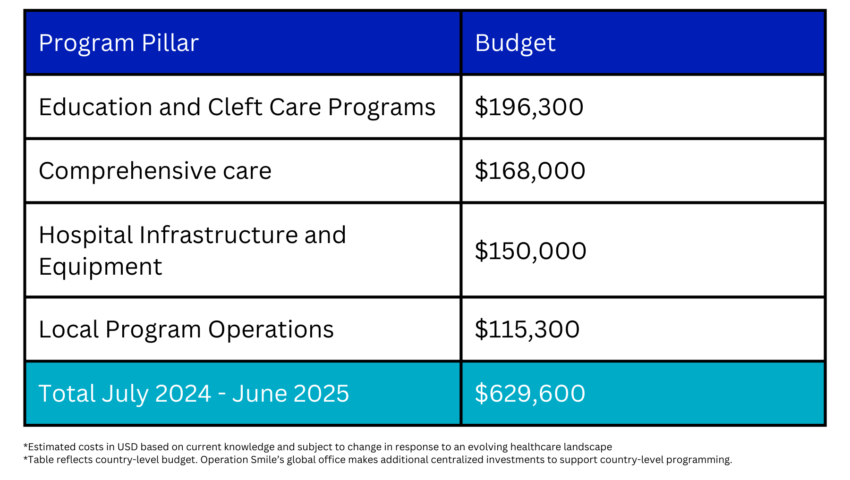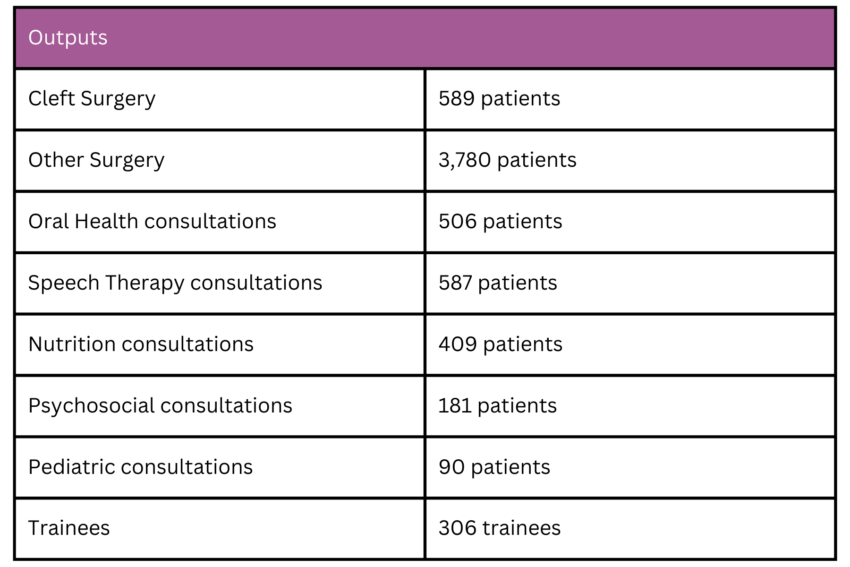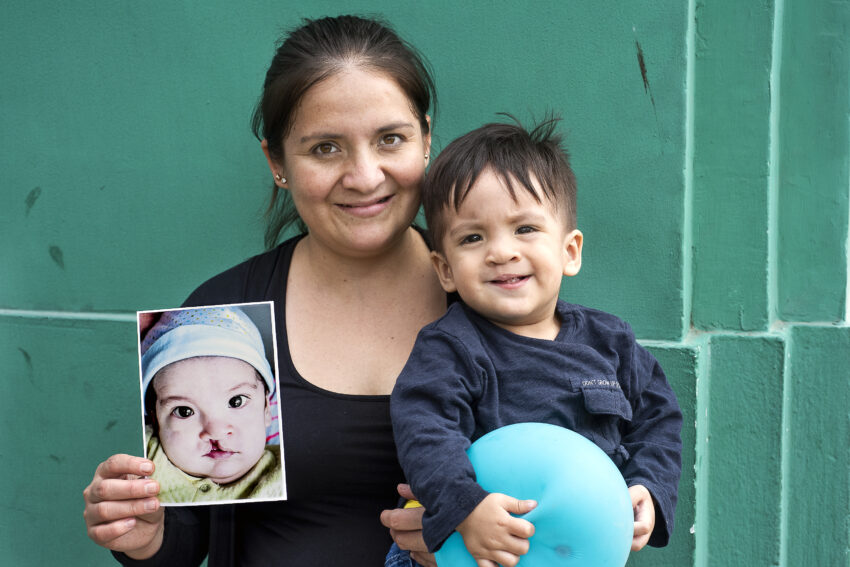
Operation Smile has delivered clinical care to over 6,980 patients affected by cleft conditions in Peru.
THE NEED
Limited access to surgery. Despite making strides in the spread of universal health coverage, Peru suffers from surgical backlogs. The Lancet Commission on Global Surgery proposed that, to meet populations’ needs, countries should achieve 5,000 surgical procedures per 100,000 population. In Peru, medical providers perform just 3,005 procedures per 100,000 people. The geography of Peru brings unique barriers. People living in the Andes and jungle regions have limited access to quality care and often need to travel long distances to receive surgery.
Financial burden. According to Operation Smile’s survey, 42% of patients arriving at Operation Smile programs in Peru live below the international poverty line. In Lima, Peru’s capital, 63% of patients arriving at Operation Smile programs said they would be unable to receive surgery if it weren’t for Operation Smile. Out-of-pocket expenses often prevent people from accessing the surgical care that they need. Eight percent of the population is at risk of impoverishing expenditure for surgical care, while nine percent faces catastrophic expenditure in case of surgical care.
Shortfall of health workers. Peru has 43 specialist surgical workers per 100,000 people, which falls short of the average number of 71 specialist surgical workers in high-income countries. Rural areas, especially regions where indigenous populations live, have fewer resources and fewer health providers compared to urban areas.
Barriers to education. Without surgery, children affected by cleft conditions face limitations in school attendance and performance. In Peru, 63% of children living with a cleft condition do not go to school due to their appearance. 67% of caretakers do not work in order to take care of children born with cleft conditions.
OUR FORMULA FOR TRANSFORMATION
Operation Smile’s formula for transformational impact combines care delivery & capacity-building.
Education programs are at the center of Operation Smile’s strategy to increase access to surgery closer to the patient’s home.
Each surgical program brings together providers from all over the world for a unique opportunity to share knowledge and innovate. This type of bi-directional learning is essential to redistributing knowledge between providers and building capacity in the areas of greatest need.
Our work in health infrastructure & equipment addresses structural barriers to care and helps build robust health systems. Operation Smile’s research & innovation efforts inform all aspects of our decision-making and allow us to have a comprehensive understanding of the impact our programs have on patients.
HUB & SPOKE
To ensure that every child has access to care close to home, we equip the providers within our patients’ communities with skills and resources to deliver high-quality care. We build the needed capacity by harnessing the talent and resources that exist within the country, usually in the bigger cities, the hubs, to train providers in under-resourced areas, the spokes, where most patients lack access to care.
In Peru, Operation Smile provides surgical and comprehensive cleft care at our hub in Lima, Instituto Nacional de Salud del Niño de San Borja.
Our spokes are based in Bellavista (Hospital Nacional Daniel A. Carrion), Arequipa (Hospital Regional Honorio Delgado), Chota (Hospital Jose Soto Cadenillas), Comas (Hospital Sergio Bernales) and Chiclayo (Hospital Docente Las Mercedes).
We work with hospital partners to expand care accessibility: Hospital de Emergencias de Villa El Salvador HEVES, Hospital Nacional Dos de Mayo and Hospital de Emergencias Pediátricas in Lima.
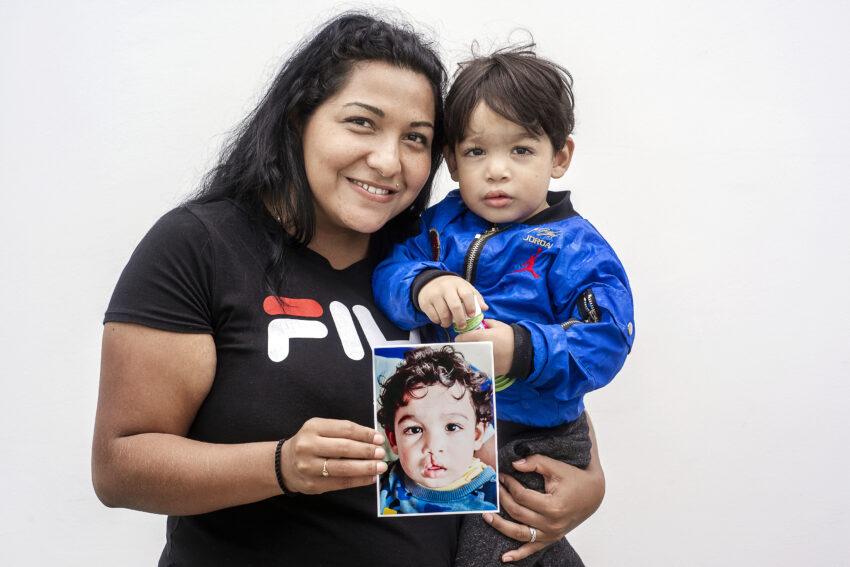
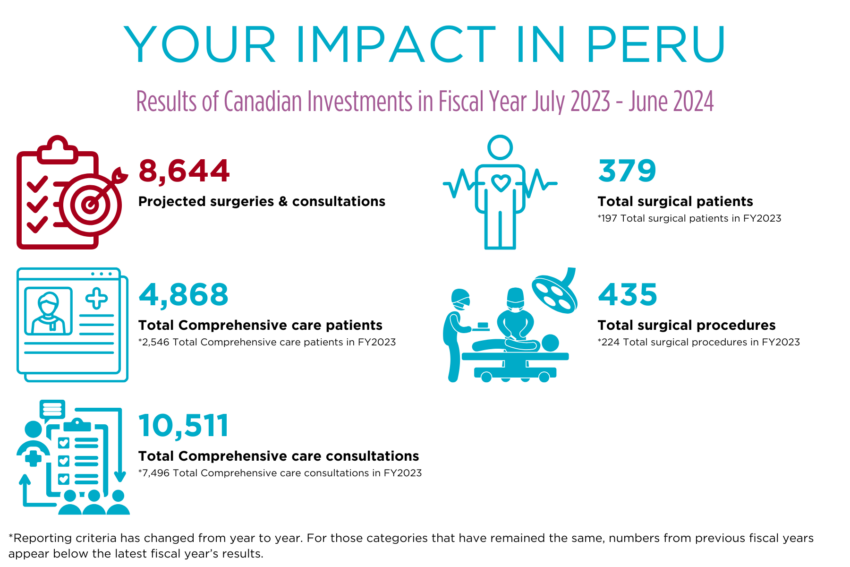
During Fiscal Year July 2024-June 2025, Operation Smile Canada has committed to invest $558,849 CAD, accounting for 48% of Peru’s total projected budget for the fiscal year, which will directly contribute to providing high-quality surgery and care for 4,370 patients and deliver training to 310 health workers.
Cleft Care Programs
Operation Smile will increase the volume of surgeries and provide surgical care to approximately 4,370 patients in Peru. Operation Smile will expand comprehensive care, ensuring that our patients have access to high-quality multidisciplinary services before and after cleft surgery. We will deliver consultations in oral health (~510 patients), speech therapy (~590 patients), nutrition (~410 patients), pediatrics (90 patients) and psychosocial care (~180 patients). Due to the unique geographic barriers in Peru that make it difficult for patients to travel to hospitals, we offer virtual consultations in the areas of nutrition, speech, and psychology.
Operation Smile will distribute a Language Accompaniment Manual and a storybook developed in collaboration with Pontifica Universidad Catolica del Peru to support our speech patients. The storybook includes songs for children to sing and improve their speech.
Education
Operation Smile will deliver educational and training opportunities to around 310 medical professionals in Peru. Operation Smile will offer training to health workers in the fields of anesthesia, plastic surgery, nursing, pediatrics, biomedical technology, oral health, nutrition, psychology, speech therapy and post-anesthesia care. We will also provide American Heart Association training courses for medical workers across various specialties.
FIVE-YEAR VISION
Over the next five years, Operation Smile will build a coordinated cleft care network in Peru, decentralizing the surgical system to provide accessible, sustainable, and multidisciplinary treatment nationwide.
This initiative aims to train five cleft surgical teams and invest in operating rooms in six hospitals. Additionally, five district hospitals will have independent non-surgical teams providing care coordination and referrals.
By the end of the five years, Operation Smile will perform surgeries for around 4,740 patients with cleft conditions and for approx. 22,440 other patients.




